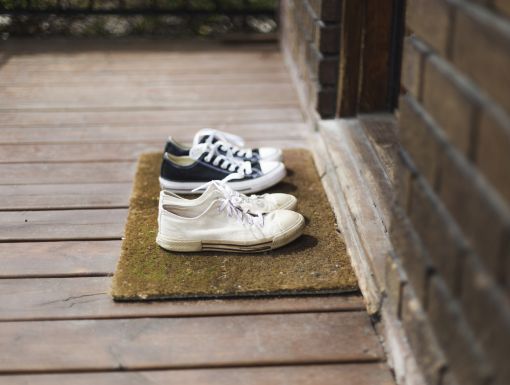
What Are the Best Over-the-Counter Allergy Medications for Adults in 2025?
You are sneezy, itchy and grumpy. You’ve been through two boxes of tissue and your nose is still running like Niagara Falls. At least you’re not alone. More than 100 million people in the United States experience various types of allergies each year, according to the Asthma and Allergy Foundation of America.
So, what’s an allergy sufferer to do? Fortunately, there are several medications available to treat allergy symptoms, many of them sold over the counter. Which one you should take may depend on your specific symptoms and, to some degree, which medication your body reacts to best.
How do allergies occur?
Understanding your allergies is helpful in determining how to fight back against them. Allergy occurs when your immune system mistakes a normally harmless substance in the environment, known as an allergen, for a threat and creates antibodies to go after the false invader. The antibodies can release immune system chemicals, such as histamine, which cause allergy symptoms.
Allergens that can trigger this faulty immune reaction include dust, pollen, pet dander and mold.
Some of the most common allergy symptoms in the nose and eyes are:
- sneezing
- nasal congestion
- runny nose
- itchy nose
- itchy, watery eyes
People of all ages can be affected by allergies. It’s not clear why some people have them and some don’t, but there is often a genetic component.
Allergies can also trigger or worsen asthma and lead to other health problems such as sinus infections and ear infections, particularly in children.
Which over-the-counter medications are best for allergies?
There is no magic cure for allergies. However, there are various types of allergy medications that can help control symptoms.
In fact, the allergy treatment aisle at your pharmacy looks a little like the cereal aisle at the grocery store. There are so many choices it’s hard to know what is best for your symptoms.
It’s important to understand that there are three different classes of allergy medication: antihistamines, decongestants and nasal sprays.
Antihistamines and intranasal steroid sprays are the main two medications recommended to treat allergy symptoms, according to the American Academy of Otolaryngic Allergy.
There are two generations of antihistamines. Benadryl or diphenhydramine, and chlorpheniramine are part of the first generation. Second-generation antihistamines include:
- Zyrtec
- Allegra
- Xyzal
- Claritin
- The generic counterparts of the above medications
Discovered in the 1930s, antihistamines block the effects of the histamine that is released when you encounter an allergen. By inhibiting the allergic response, they reduce symptoms of itching, sneezing and runny nose. They can also help with hives.
You should begin to experience relief within 20 to 60 minutes of taking a dose. You may also feel very sleepy after taking an antihistamine, particularly a first-generation one. These medications can be used daily or as needed. They may not help with congestion symptoms if you are already clogged up.
The key difference between first- and second-generation antihistamines is that the latter are purported to not cause sleepiness and may work better with other medications, health experts say.
Intranasal steroids sprays, such as Flonase (fluticasone propionate) and Nasacort (triamcinolone), work by decreasing inflammation within the nasal passages, thereby relieving nasal allergy symptoms.
These sprays can reduce an array of allergy symptoms, including sneezing, runny nose, and congestion. The usual dose is two sprays in each nostril daily.
They do not work well on an as-needed basis. They work better when taken more consistently on a daily basis.
Steroid sprays may take a while to work for some allergy sufferers. They may begin to provide some help with symptoms after about six to 10 hours, but it could take up to several weeks of daily use for full relief to occur. They can also irritate the tissue that lines the nasal cavity and cause nasal irritation or nose bleeds.
Oral decongestants such as Sudafed, (pseudoephedrine) or topical spray decongestants like Afrin or neo-synephrine, can help unclog your breathing passages when allergens bring on stuffiness; however, their use should be limited due to side effects. They work by constricting blood vessels to reduce swelling in the nose. This helps mucus and air to flow more freely in your sinuses, thus helping you with congestion. Decongestants don’t help with sneezing and itching.
Elevated blood pressure and difficulty sleeping are two common side effects of oral decongestants. They should be taken only on an as-needed basis, and not daily, according to the AAOA. Their use should especially be limited in patients with high blood pressure or heart problems.
Nasal decongestants like Afrin can be addictive and cause significant rebound swelling if used consistently. They should only be used for two to three days at a time for more severe symptoms. Otherwise, your symptoms could end up worse than as if you had never started it.
Learn more about allergist Alegra Grieb, MD.



